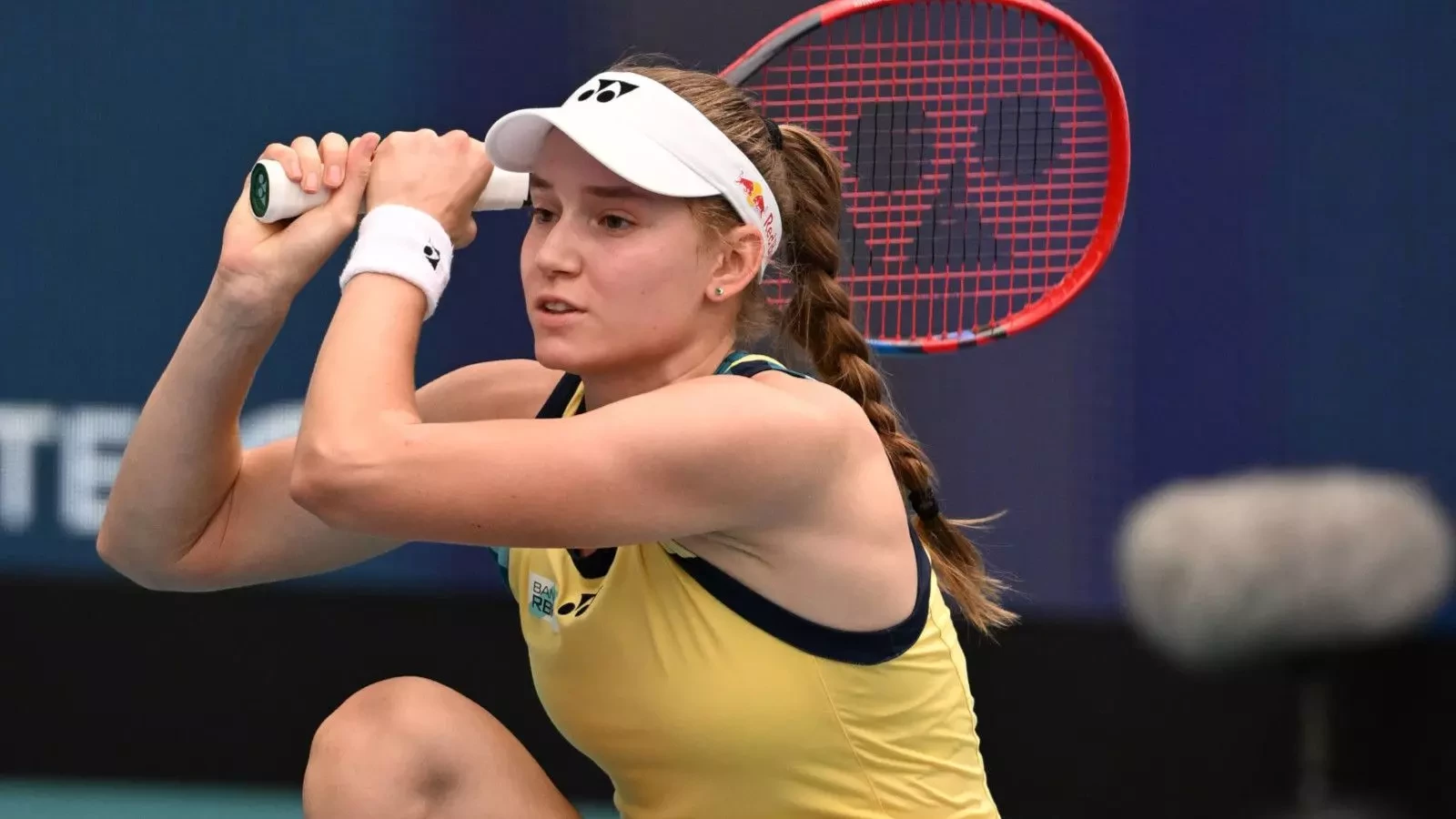
Former world number one and tennis legend Chris Evert has come to the defense of Elena Rybakina following media scrutiny over the Kazakh player’s responses during press conferences at the French Open. Rybakina, currently ranked world number four, entered Roland Garros as one of the top contenders for the title and showcased her championship credentials with a commanding performance in the first round. She comfortably dispatched Belgium’s Greet Minnen 6-2, 6-3 in a clinical display on Monday.
Despite her strong start to the tournament, Rybakina found herself in the spotlight for reasons off the court. Following her match, she appeared visibly unimpressed when a journalist posed a question about the qualities needed to become a Grand Slam champion. The question, seemingly straightforward, received a curt response from the reigning Wimbledon champion.
“It’s quite basic,” Rybakina responded. “You need to work hard, do all the things usually you don’t want to do. I mean, simple question, simple answers. So, guys, something else?”
Her response, though blunt, reflected her pragmatic approach to the game, but it sparked mixed reactions online, with some accusing her of being dismissive.
### **Not the First Instance of Tension with the Media**
This was not the first time Rybakina had expressed dissatisfaction with questions during a press conference. Earlier in the tournament, she was asked about her Yonex outfit and whether she had chosen the colors herself. Rybakina appeared irritated by the question and replied, “These colors, I didn’t choose. It was the brand who chose for me, so… some other questions?”
A video of her responses quickly circulated on social media, particularly on Instagram, where the account claimed she “snapped” at reporters during the event. While some fans viewed her remarks as a natural expression of frustration, others criticized her demeanor, labeling it as unprofessional or lacking grace.
### **Chris Evert Steps In**
The narrative surrounding Rybakina’s interactions with the media reached the attention of Chris Evert, an 18-time Grand Slam champion and one of the most respected voices in tennis. Evert dismissed the claims that Rybakina’s responses were rude or combative, instead interpreting them as straightforward and justified.
“What???? You call this snappy? omg, you guys are reaching…😂😂😂,” Evert commented on the Instagram video, defending the young star and dismissing the criticism as overblown.
Evert’s response highlighted a broader issue within sports media — the tendency to overanalyze athletes’ reactions, especially in high-pressure environments like Grand Slam tournaments. Her defense resonated with many fans, who agreed that Rybakina’s responses were far from inappropriate.
### **Pressure and Expectations on Rybakina**
As one of the top players in the world, Rybakina faces immense pressure to perform both on and off the court. Her rise to prominence, marked by her Wimbledon title in 2022, has come with increased scrutiny, especially during major tournaments.
Entering the French Open as one of the favorites, the Moscow-born player has been under the microscope for both her performances and her personality. Known for her calm and composed demeanor on the court, Rybakina’s candid approach in press conferences reflects her no-nonsense attitude.
However, this straightforwardness can sometimes be misinterpreted as abrupt or dismissive, especially in the media spotlight. Athletes, particularly in individual sports like tennis, often walk a fine line between maintaining authenticity and meeting public expectations for diplomacy.
### **The Role of Media in Shaping Perceptions**
The media’s role in shaping narratives around athletes cannot be understated. While press conferences are an essential aspect of professional sports, the questions posed to players often range from insightful to mundane, and at times, even irrelevant.
Rybakina’s reaction to questions about her outfit and the “simple” question about being a Grand Slam champion are examples of how athletes can grow weary of repetitive or trivial inquiries, especially when they are focused on their performance.
In this case, Evert’s defense highlights a growing awareness among former players and fans about the need to balance media obligations with respect for athletes’ mental well-being.
### **Looking Ahead at Roland Garros**
Despite the media distractions, Rybakina remains a strong contender at the French Open. Her first-round performance showcased her powerful baseline game and excellent court coverage, traits that make her a formidable opponent on any surface.
As the tournament progresses, Rybakina will look to channel her focus on her matches and let her racquet do the talking. With champions like Evert supporting her and fans rallying behind her candid personality, Rybakina has the tools and the mindset to make a deep run at Roland Garros.
### **The Bigger Picture**
The incident involving Rybakina and the media serves as a reminder of the challenges athletes face in balancing performance with public relations. While fans and journalists expect accessibility and charm from players, it’s important to recognize their humanity and the pressure they endure during high-stakes tournaments.
Chris Evert’s defense of Rybakina underscores the importance of empathy and perspective when evaluating athletes’ interactions with the media. As Rybakina continues her journey at the French Open, the focus should remain on her talent and potential rather than her reactions in press conferences.
In a sport that thrives on its stars, players like Rybakina bring a refreshing authenticity that should be celebrated rather than criticized. Whether she lifts the trophy at Roland Garros or not, Rybakina’s resilience on and off the court will undoubtedly continue to shape her legacy in the years to come.
Leave a Reply